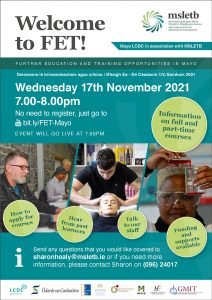Today we push on with our step-by-step guide to building a winning CV. You may recall from the past few weeks that we have covered Personal Profile; Key Achievements, Skills & Attributes; and Referee Description (if you’d like those three columns emailed to you, simply email getthatjob@slinuacareers.com with ‘columns x 3’ in the subject line.
Next up in your CV will be your Work Experience or Education & Training. People tend to think chronologically here – in other words, if their most recent ‘thing’ was a piece of work experience, they go with Work Experience, or vice-versa if their most recent pursuit was education.
However, this may not cut it with the employer who is much more interested in relevance than chronology. So instead of rolling out your career to date in the order in which it occurred chronologically, you should put yourself in the employer’s shoes and think what matters most to them.
Thus if the most relevant item for the employer is the course you completed ten years ago, the Education & Training section should appear on your CV before the four jobs you did in the intervening ten years.
List the item. Say what you studied there. Include a thesis title if it’s particularly relevant to the job you’re going for – or a work placement if that mirrors the position now up for grabs.
Don’t present exhaustive detail. Give an overview and ‘bulk’ certain items together. A CV is not designed to give chapter and verse, but rather to signpost your achievements, skills, attributes, experience and training.
Give prominence to relevant pieces of work or study. To close off gaps, list the less relevant ones too, but don’t go into too much detail: ask yourself the question, is this employer really interested in this part of my career? If not, adopt a minimalist approach.
Many people give equal prominence to all parcels of work or study in their careers. They treat the CV more like a form-filling exercise than what it actually is – a sales exercise. Highlight the features of the product (i.e. you) that will help you get the job for which you’re currently applying.
This week’s top tip
Go through the published job spec with a fine-tooth comb. Don’t speed-read it: instead pore over every little part of it to see what exactly it is saying, and what it relays about the needs of the employer.
Are they talking up IT skills? Why have they included anti-social hours as a prerequisite?
By and large, companies don’t put things on job specs for the fun of it: everything has a reason. Study it closely and see what you can draw down from your career to date to meet the spec.
Furthermore, study the company website. Talk to people working there. Form a very strong profile of the organisation so that you can craft your CV and interview performance in a way that really puts you in the frame.
For a free critique of your CV, simply go here: www.slinuacareers.com/critiques Sli Nua Careers offer CV preparation, interview training and mock interview services at their offices in Galway, Limerick, Dublin, and Ballinrobe, Co. Mayo. More: www.slinuacareers.com





